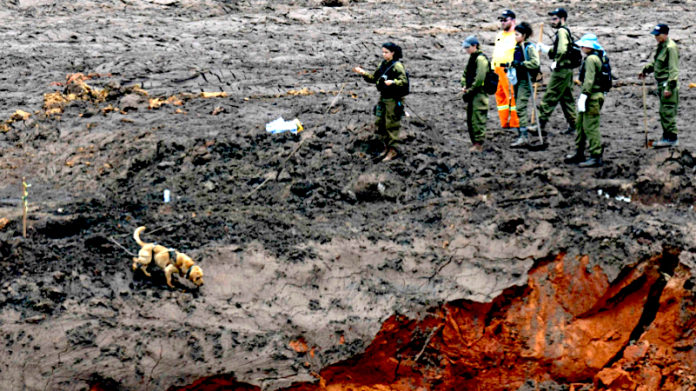
GOLD mining companies Barrick Gold and Gold Fields welcomed the launch on Wednesday of the Global Standard on Tailings Management which aims to prevent tailings dam disasters, such as the Brumadinho event in 2019 in which more than 250 people died as a result of a dam breach at a Vale iron ore mine in Brazil.
The new standard establishes the first global standard on tailings management that can be applied to existing and future tailings storage facilities (TSFs). It was formulated by the World Bank with the Principles for Responsible Investment and the International Council on Mining & Metals (ICMM).
Strengthening current practices in the mining industry by integrating social, environmental, local economic and technical considerations, the standard covers the entire tailings facility lifecycle – from project conception, planning and design, through operation and ongoing construction, to closure and post-closure, said Gold Fields.
Mining firms have since 2015 – following an earlier dam collapse at the facilities of Samarco Mineração SA which is jointly owned by BHP and Vale – worked on improving their confidence in the technical integrity of TSFs.
“Our facilities are meticulously engineered and regularly inspected, with special attention given to those in regions with high rainfall or seismic activity,” said Grant Beringer, group sustainability executive for Barrick Gold.
“Most companies are realising that there is a skills gap, because you have senior people moving out and not enough younger people moving in,” said mining engineering professor Priscilla Nelson in an interview with Reuters. Nelson is setting up a new tailings program at the Colorado School of Mines.
Miners had not placed as much importance on tailings management, said Reuters. There was little prestige attached to the unglamorous work of trekking to remote mine waste dams.
“There is a lack of resources within the mining industry to manage tailings,” said John Howchin, secretary-general of the Council on Ethics of the Swedish National Pension Funds, which helped craft the standard.
“Any more failures – no matter whose mine it is – will affect the whole industry. Everyone has to lift their game,” Andy Fourie, director of a new tailings management training program at the University of Western Australia told Reuters.










